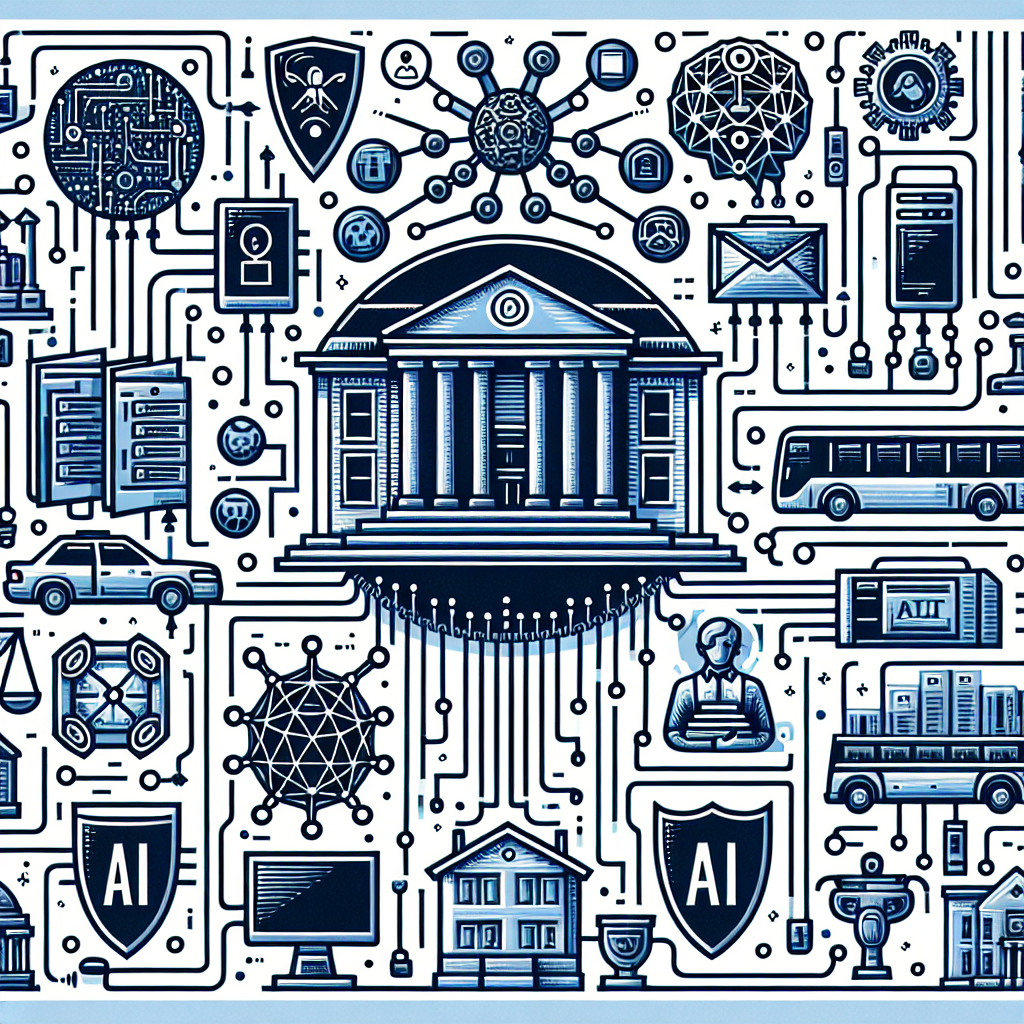In recent years, artificial intelligence (AI) has emerged as a powerful tool for improving citizen services in government. By leveraging AI technology, governments around the world are able to streamline processes, increase efficiency, and provide better services to their citizens. From improving healthcare services to enhancing public safety, AI has the potential to revolutionize the way governments interact with their citizens.
One of the key areas where AI can make a significant impact is in healthcare services. By using AI-powered tools, governments can better predict disease outbreaks, optimize healthcare resources, and personalize patient care. For example, AI algorithms can analyze large amounts of healthcare data to identify patterns and trends that can help healthcare providers make more informed decisions. This can lead to better patient outcomes and a more efficient healthcare system.
In addition to healthcare, AI can also be used to improve public safety services. By analyzing data from various sources, such as social media, surveillance cameras, and emergency calls, AI algorithms can help law enforcement agencies better predict and prevent crime. For example, predictive policing models can analyze historical crime data to identify high-risk areas and allocate resources accordingly. This can help reduce crime rates and improve overall public safety.
Furthermore, AI can also be used to enhance government services in other areas, such as transportation, education, and social services. By automating routine tasks and providing personalized recommendations, AI can help governments deliver more efficient and effective services to their citizens. For example, AI-powered chatbots can provide instant support to citizens looking for information or assistance, reducing the burden on government employees and improving the overall citizen experience.
Despite the many benefits of leveraging AI for better citizen services, there are also concerns about the ethical and privacy implications of using AI in government. For example, there are concerns about bias in AI algorithms and the potential for AI systems to infringe on citizens’ privacy rights. Therefore, it is important for governments to implement robust regulations and ethical guidelines to ensure that AI is used responsibly and in the best interests of citizens.
Overall, leveraging AI for better citizen services in government has the potential to improve the lives of citizens and make government services more efficient and effective. By harnessing the power of AI technology, governments can better meet the needs of their citizens and provide services that are tailored to their individual needs. As AI continues to evolve and advance, governments must continue to adapt and innovate in order to fully realize the benefits of AI for citizen services.
FAQs:
1. What are some examples of AI applications in government services?
– Some examples of AI applications in government services include predictive analytics for healthcare, predictive policing for public safety, and chatbots for citizen support.
2. How can AI improve healthcare services in government?
– AI can improve healthcare services in government by analyzing large amounts of healthcare data to identify patterns and trends, personalize patient care, and optimize healthcare resources.
3. What are some concerns about using AI in government services?
– Some concerns about using AI in government services include bias in AI algorithms, privacy implications, and the ethical implications of using AI to make decisions that affect citizens.
4. How can governments ensure that AI is used responsibly in citizen services?
– Governments can ensure that AI is used responsibly in citizen services by implementing robust regulations and ethical guidelines, conducting regular audits of AI systems, and engaging with stakeholders to address concerns and feedback.
5. What are some future trends in AI for government services?
– Some future trends in AI for government services include the use of AI-powered virtual assistants, the integration of AI with IoT devices for smart city initiatives, and the development of AI-powered predictive models for various government services.

